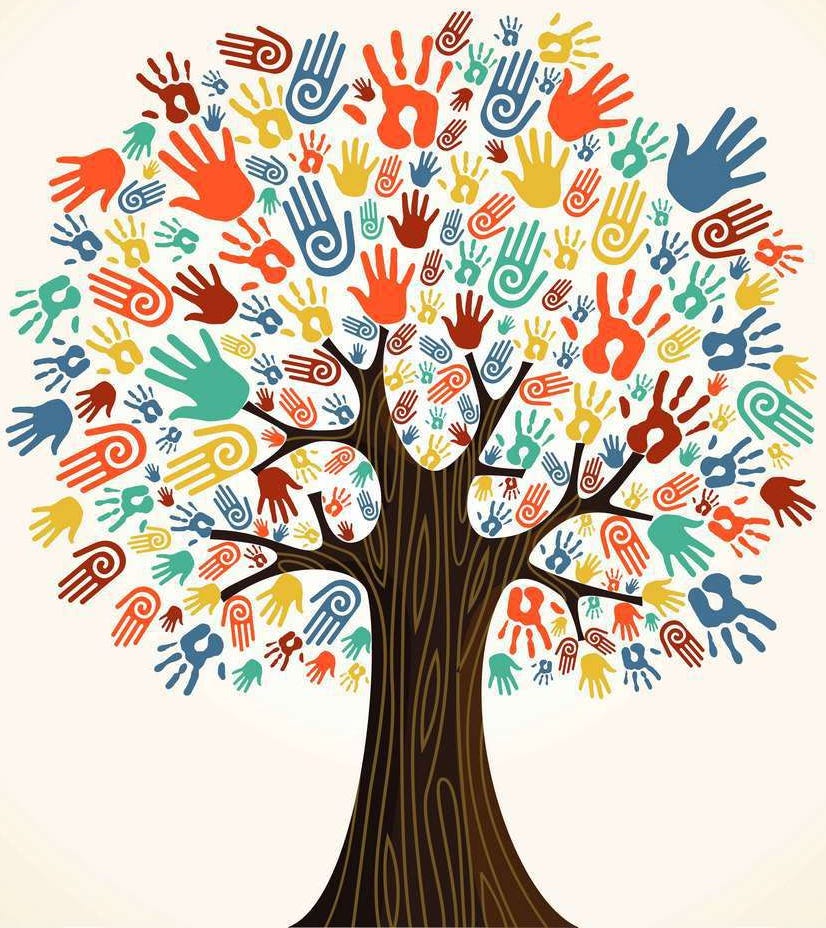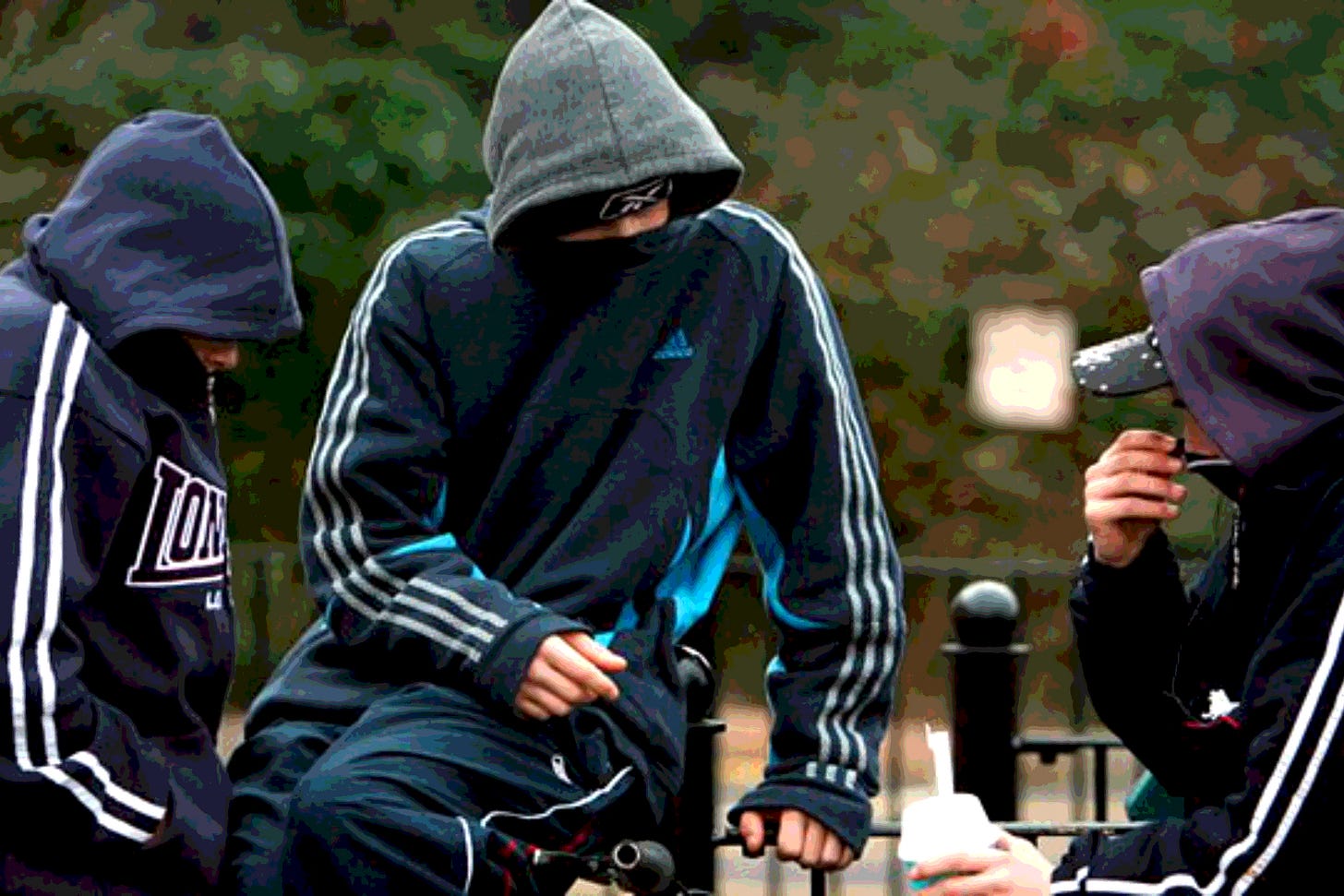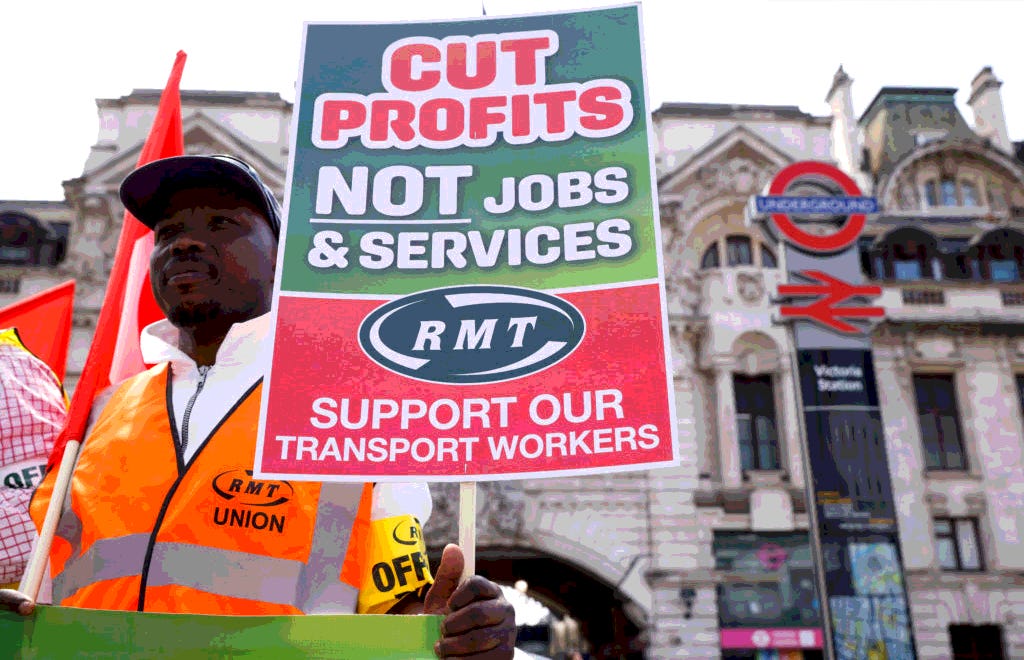This is an old piece that has been gathering dust in our archives after having been posted on an old blog. For some reason, it was never published here on this Substack blog. Having read through it, we feel that despite some of the situations referred to having taken place over a couple of years ago, the points made in this piece are generic enough to warrant re-publishing it. This is particularly the case when we have a situation where various nefarious actors with dubious agendas across the country are stirring up tensions and pitting people against each other. A few minor edits have been made to bring things up to date.
In this piece - Reacting to change 12.8.23 - written well over a year ago, we discussed how people deal with living in a rapidly changing and unpredictable world. We concluded that people are absolutely fine with change if they are in control of the process. We also concluded that when people feel they have little or no control over the process of change and feel it's something that's being imposed upon them, understandably, it becomes something they fear. We raised issues relating to the perception that when people feel that societal and cultural changes are being imposed upon them, their response to that may in some circles be perceived as 'reactionary'. More broadly, we touched upon how people want some degree of predictability in their lives in order to be able to plan for their future and that of their loved ones. We also touched upon how, when people feel that the world around them is falling apart, if their concerns are dismissed or denigrated, there will be nefarious reactionary elements waiting in the wings to cynically exploit those concerns.
What we want to look at in a bit more depth in this piece is the desire, not just for a degree of stability and predictability, but also for safety. That means people being able to walk out of their front door and down the street or through the local park without having to constantly look over their shoulder. Obviously, that applies more to women who have to factor safety into the equation in many situations where men wouldn't give it a second thought. It's not reactionary to want to be able to walk out and about and not be afraid for your safety. This should be the baseline for anyone who cares about social justice.
For sure, the motives of those who commit crime in our communities need to be understood but that's in order to do what we can to eliminate it at the root. It should not be to excuse the act of those who assault and rob. Those who assault and rob people in their neighbourhoods are what the Independent Working Class Association have described as 'the renegades within'. That's those individuals who have no understanding of what a community is, let alone any sense of empathy or responsibility towards it. Basically, people who act as scabs towards their own neighbourhood.
Feeling safe comes from knowing that there is a sense of community and solidarity in your neighbourhood. That can only come if the population is relatively stable. We use the term 'relatively' because obviously, people do move around for many reasons and no one wants to live in a neighbourhood that's effectively ossified. Some of our critics may be tempted to suggest that our vision of a community is one that's homogenous and white working class. That's a very narrow definition that no one we know in activist circles has ever suggested should be the case. If they had, we'd have given them very short shrift indeed, trust us on that! Our definition of a community is one where, regardless of who they are or where they originally came from, people look out for each other and do what they can, often against the odds, to make their neighbourhood a decent place to live. It's also one where divide and rule merchants from any part of the political spectrum are not tolerated in any way, shape or form.
When there are a lot of properties on short term lets in a neighbourhood with a constant churn in the population, it becomes harder to build a sense of community where people can bond with and look out for each other. This is why when a town or city has a university that's expanding and more and more private property is being let out to students, there's understandable resentment from the longer established residents. This is also why, when refugees are housed (dumped) pretty much unsupported by 'housing providers' getting a nice fat cheque from the Home Office into a neighbourhood that may well have more than it's share of problems, there will understandably be some degree of resentment. This is particularly the case if there are difficulties between the refugees in a house that spill out into the immediate neighbourhood. We saw this at first hand when we were in Thurrock with housing for refugees being little more than warehousing with scant regard for their welfare or that of the neighbours. We also saw what happened to neighbourhoods with a high level of rental property on short term lets.
We've seen at first hand how reactionary elements have exploited people's legitimate concerns about crime from the rogue elements in their community or the impact of unsupported refugees. They do this because all too often, those expressing these concerns are dismissed as bigots when actually, all they want is to live in a safe neighbourhood where people know each other and look out for each others welfare. When people expressing fears about the way their neighbourhoods are becoming more fractured are branded as bigots, unsurprisingly, this will create a political vacuum because they feel that no one cares about them. As we've mentioned a fair few times before, please don't be surprised when more reactionary, 'traditional' political elements move in to fill that vacuum. What really irks us is that we have to keep repeating this because of the number of tone deaf, so called 'radicals' who refuse to have even the most basic engagement with people who fear what's happening to their neighbourhoods.
Yes, we know there are material causes such as parasitic landlordism behind growing levels of social atomisation in neighbourhoods. All we're asking is that as well as dealing with these root causes, some attention is also paid to the symptoms which manifest themselves in various forms of atomisation and social breakdown. It is possible to have a multi-faceted approach to dealing with issues at the neighbourhood level rather than parroting slogans and offering simplistic answers. That applies to both ends of the political spectrum!
It does feel like things are falling apart at the moment. That's both in terms of how society and the economy function as well as a growing sense that socially, things are starting to feel pretty brittle. It feels like the early stages of a broader systemic breakdown.
Let's deal with how things (don't) function to start off with... Nothing seems to work like it should. The big corporations are stacking up obscene levels of profit while offering their customers an ever shoddier service. When it's a monopoly such as Wessex Water, not only can they get away with a bare minimum service offering to their customers, they also feel they can chuck any excess sewage their under-resourced systems can't cope with straight into the nearest river! If you have to rely on public transport, be it rail or bus, you face a deteriorating service and routes being axed. From being kept waiting for hours on end trying to get through to a human at a call centre through to being left stranded when the bus service is axed, it feels like modern life is becoming crappier by the day.
If you work for a major utility or transport operator, you're the one expected to work longer hours for below inflation pay rises to pick up the pieces for decades of under investment while the fat cats rake off ever bigger profits. We've been living near Bristol for over two years now, and from our travelling experiences, we can already see that Great Western Railway (GWR) is creaking at the seams. All too often when we travel on GWR, there have been delays, with last minute platform switches or trains held outside the station while the front line staff on the platform do their level best to try and keep the public informed. When you're expected to work day in, day out on crisis management as a result of under investment in the railway, it's no wonder that rail workers felt they have no option but to resort to strike action. The same applies to the postal workers expected to deliver productivity increases without the incentive of a decent pay rise and gratitude from the senior management. A growing number of Amazon workers have had enough of being run off their arses and are taking strike action.
The way things are going, there is going to be a lot of industrial action as a growing number of workers walk out on strike. Given that what the workers want is decent pay for a day's work and stability so they can plan for their futures instead of having to put up with increasing levels of precarity, it's hardly surprising they feel they have to come out on strike. If asking for decent pay, stability and some respect is too much, then it is time for radical change but, on our terms. This will inevitably involve a lot of disruption. The thing is that you have to break a few eggs to make an omelette...
Over the last four years, we've said that there will be long term adverse consequences arising from the impact of the Covid lockdowns on schools and the number of already disadvantaged kids who fell through the net. We said that a number of those kids who fell through the net will feel that society owes them nothing and therefore will respond accordingly. One manifestation is an increase in blatantly nihilistic behaviour.
This is just one example of what has happened: Oxford Street chaos as shops looted, Ferrari jumped on and police assaulted in wild scenes in Central London. While we've stated that there are serious issues with the kids who have fallen through the net, there's nothing that can be said in defence of this nihilistic and ultimately self destructive behaviour. On an admittedly lesser scale but still concerning in a town that has more than it's fair share of problems, there's this from a while ago from our old patch: Police say they are stepping up patrols to tackle bike menace in Tilbury.
The fear of not being able to go into a city centre because of sporadic outbreaks of violence or walk around your neighbourhood without having to constantly look over your shoulder is corrosive. Feeling ever more isolated in a neighbourhood with a constantly changing population and not knowing who you can and can't trust is corrosive. Fear divides people and is exploited to pit them against each other. We as activists in our community need to acknowledge that reality and do what we can to help residents wanting to rebuild a sense of community and bring some stability into people's lives. We're about building for radical change from the level of the neighbourhood up. The kind of change that will lead to a world where people feel there's the stability that will enable them to lead full, rewarding lives as opposed to struggling to exist in an increasingly hostile environment. The point is, you can't build for change from the grassroots upwards if our neighbourhoods are in chaos and everyone is fearful of each other. To build for change, you have to have a stable platform.
That's why we've embarked upon this exercise of asking what do we mean by radical change and looking at how people regard change. It's also why we're paying attention to people's desire for a degree of stability and certainty and most importantly of all, safety. This may put us at odds with some of our comrades, not least because in some ways, we're re-examining what motivated us back in our days in the Independent Working Class Association. So be it - we base our politics on what we've actually seen and experienced in our lives and we make no apology for that.










